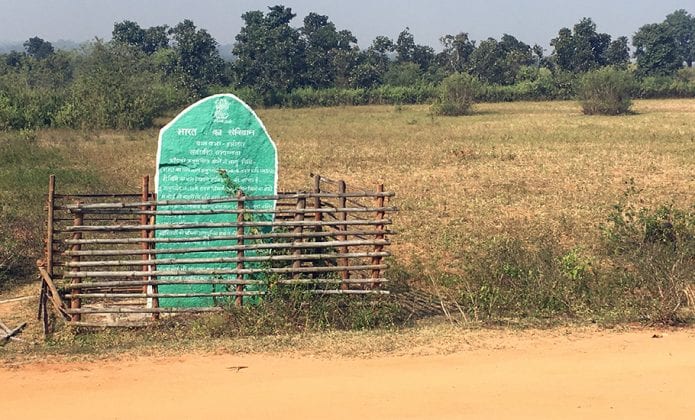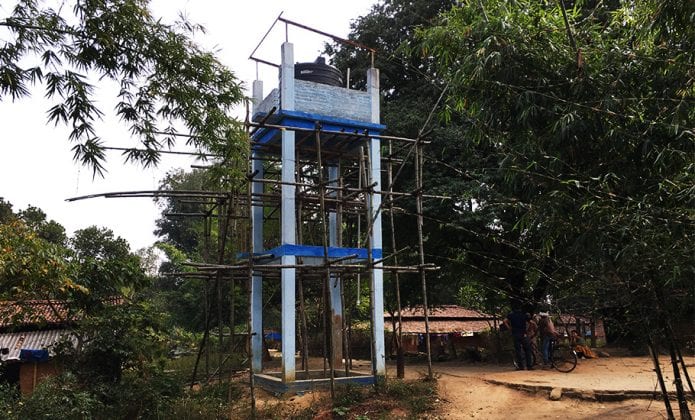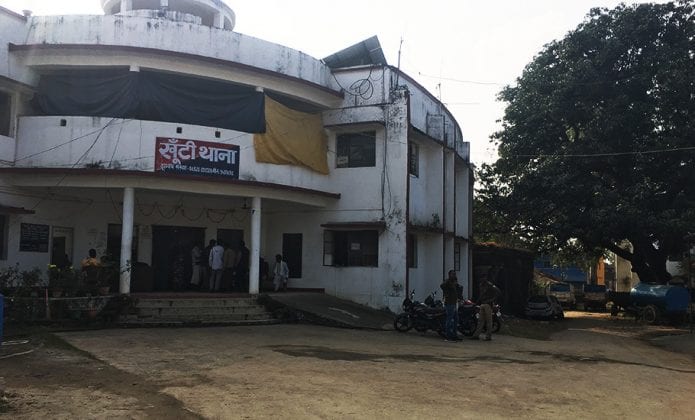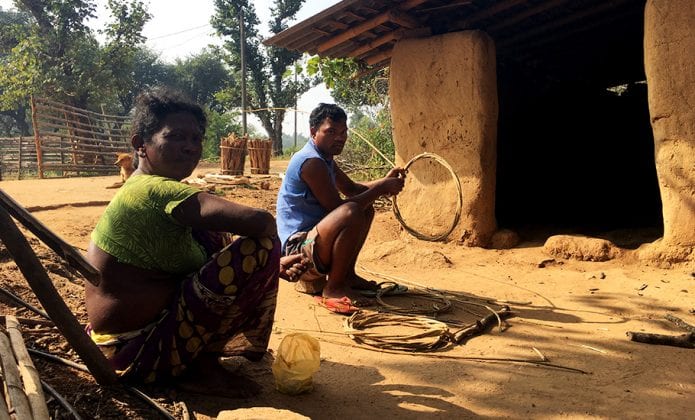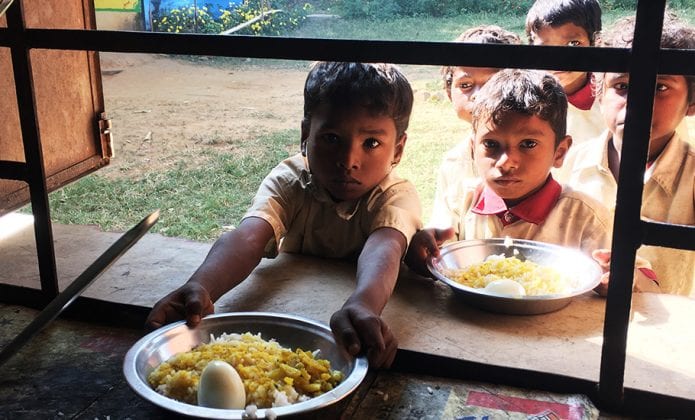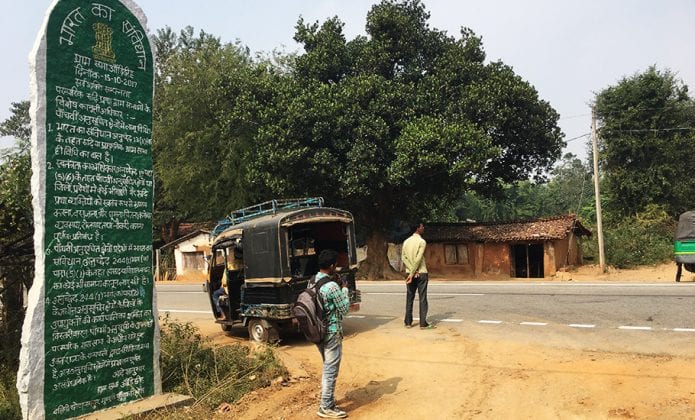
- Home
- India
- World
- Premium
- THE FEDERAL SPECIAL
- Analysis
- States
- Perspective
- Videos
- Sports
- Education
- Entertainment
- Elections
- Features
- Health
- Business
- Series
- In memoriam: Sheikh Mujibur Rahman
- Bishnoi's Men
- NEET TANGLE
- Economy Series
- Earth Day
- Kashmir’s Frozen Turbulence
- India@75
- The legend of Ramjanmabhoomi
- Liberalisation@30
- How to tame a dragon
- Celebrating biodiversity
- Farm Matters
- 50 days of solitude
- Bringing Migrants Home
- Budget 2020
- Jharkhand Votes
- The Federal Investigates
- The Federal Impact
- Vanishing Sand
- Gandhi @ 150
- Andhra Today
- Field report
- Operation Gulmarg
- Pandemic @1 Mn in India
- The Federal Year-End
- The Zero Year
- Science
- Brand studio
- Newsletter
- Elections 2024
- Events
- Home
- IndiaIndia
- World
- Analysis
- StatesStates
- PerspectivePerspective
- VideosVideos
- Sports
- Education
- Entertainment
- ElectionsElections
- Features
- Health
- BusinessBusiness
- Premium
- Loading...
Premium - Events
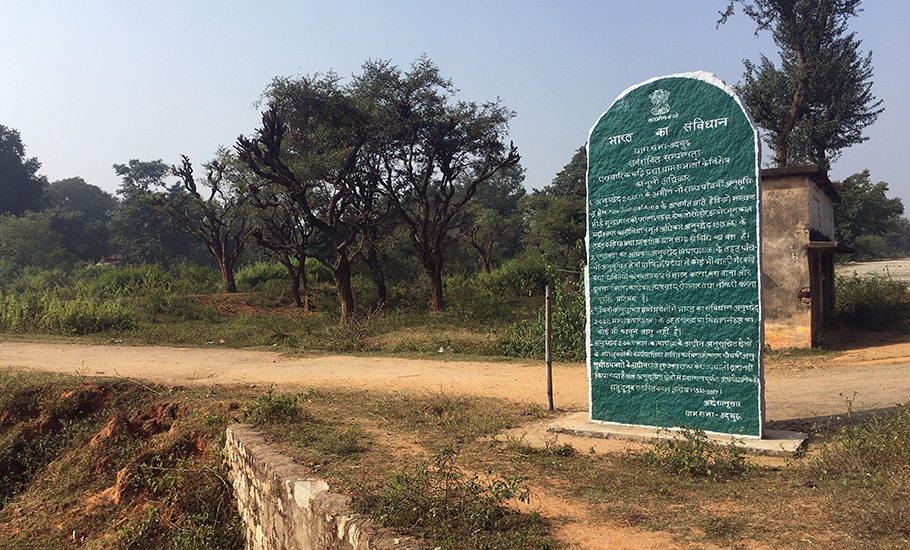
Jharkhand polls: In the shadow of police repression and a tribal uprising

Like any other day, Silmani Purty, a tribal woman, is busy collecting firewood from a forest near her village in Jharkhand’s Khunti district. Of the 38 houses in Udburu village which has a population of 200, she is one of the lucky few to have electricity connection in her home, though there is no gas connection. Apart from successive governments, including the current BJP dispensation,...
Like any other day, Silmani Purty, a tribal woman, is busy collecting firewood from a forest near her village in Jharkhand’s Khunti district.
Of the 38 houses in Udburu village which has a population of 200, she is one of the lucky few to have electricity connection in her home, though there is no gas connection.
Apart from successive governments, including the current BJP dispensation, not providing facilities to the tribals, an uprising in 2017, which has come to be known as Pathalgadi movement, to boycott government services, has resulted in the villagers being left high and dry.
For Silmani, the firewood is not only her cooking fuel but also her only means of income. With no immediate employment opportunity in the village or in the nearby town, Silmani sells thick dried wooden blocks in the market for ₹100 a bunch and makes about ₹800 a month.
Like Silmani, most of the villagers in Udburu, who speak Mundari language, depend on the forest for their livelihood.
But life took a turn for the worse for Silmani after her husband Prabhu was arrested last year in connection with the Pathalgadi movement.
Prabhu and 27 people were charged with sedition for allegedly creating obstacles in government’s developmental works and “provoking people to act against the state”.
The Jharkhand Police on September 6, 2018, raided her house after spotting her husband on a road leading to the village when he was on the run.
Silmani, who used to visit her husband every week, stopped after six months as the police transferred him to Dhanbad district jail, about 200 km from her place. She says she is not able to earn enough or arrange money to visit him frequently.
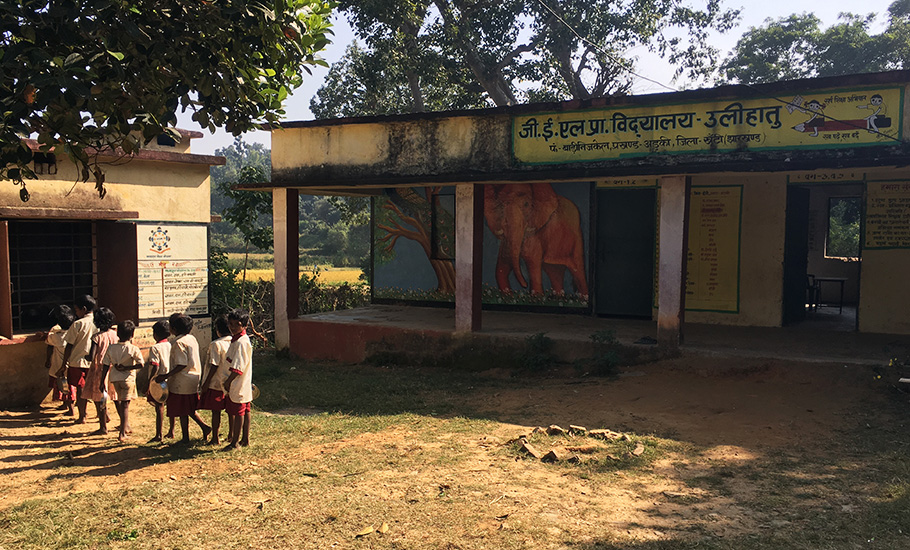
With two school-going daughters to support, and husband in jail, she is struggling to make ends meet.
To top it all, she is being treated as an outcast by many of her own villagers, as a fallout of participating in the Pathalgadi (Patthargadi) movement.
Rise of Pathalgadi movement
Pathalgadi is a traditional Adivasi practice where people erect stone slabs (pathals) in honour of their ancestors and announce important decisions regarding their families engraved on the slabs. Over the years, after the passage of the Panchayat (Extension to Scheduled Area) Act (PESA) in 1996, many villages in Jharkhand erected slabs quoting provisions of the Act written in Hindi.
Pathalgadi emerged as a non-violent movement against the government’s attempts to force land acquisition, implement schemes without people’s consent, exploit Adivasis, and over the failure to protect tribal culture.
The movement took an upward turn after the BJP government led by Chief Minister Raghubar Das in November 2016 amended two laws — Chotanagpur Tenancy Act (CNT), 1908 and Santhal Parganas Tenancy Act (SPT), 1949 — of the state. The amendments empowered the government to use agricultural land for non-agricultural purposes. The government argued that this was necessary to bring ‘industrial development’ in the region. But when the bill was sent for governor’s approval, it was sent back and subsequently the government scrapped the amendments.
The damage, however, was done. It instilled fear among villagers that their land was at stake and the BJP might bring back the amendments again.
While the Adivasis feared that they would lose their land rights, culture and history — and not without reason — soon they started erecting stone slabs with inscriptions written in Hindi, highlighting the special autonomy granted to Adivasi areas under the Fifth Schedule of the Constitution, and summary of Supreme Court orders. The text, however, was not a word for word reproduction of the Constitutional provisions, but how the Adivasis interpreted them. The villagers interpreted that the general state and central laws do not apply in scheduled areas and that the Gram Sabha are primary governing authority in the villages in scheduled areas.
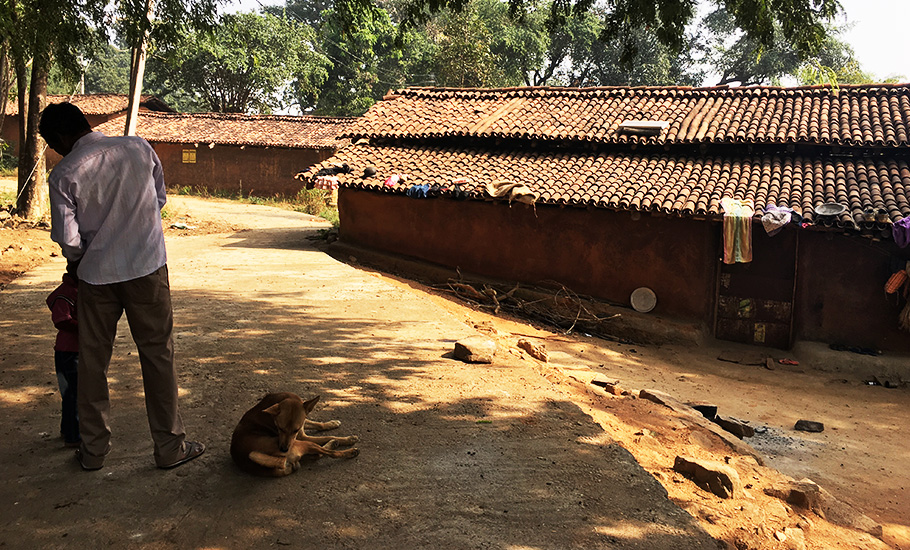
The stone engravings also invoked tribal traditions and Article 19 (5) to bar the entry of people, including government officials, from outside the village.
Pathalgadi eventually took the shape of a movement and spread like a wildfire to at least 100 villages of Khunti district, resulting in major resistance by Adivasi villagers, often leading to armed battles with the state machinery.
Reacting to the government “high-handedness” and alleged police brutality against the villagers, a 24-year-old tribal youth who is out on bail and is in hiding in Ghaghra village, tells The Federal: “What did they achieve in the last 70 years (since the adoption of the Constitution)? When we assert our Constitutional rights, they have a problem.So why do we need a government?”
He had stopped government officials from laying a road, from building a water tank in the village and had refused to take monthly ration. He was angry that the government failed to explain the benefits of the schemes and had not taken the consent of the villagers as mandated.
Subsequently, the police cracked down on the villages and slapped charges against many villagers.
According to reports, an analysis of 19 FIRs filed in cases related to the Pathalgadi movement revealed that the police had named 172 persons besides mentioning hundreds as “unknown”.
Civil rights group, Jharkhand Janadhikar Mahasabha, which had accessed all the FIRs, noted that at least 10,000 unidentified villagers were slapped with sedition charges.
The villagers allege that as the FIR mentioned several people as “unknown”, police brutality continued in the villages and anyone who spoke against the system or against them were arrested and included in the list.
Repression and repercussions
Before Prabhu Purthy was arrested, the police had raided the village in search of movement’s key proponent Joseph (Yusuf) Purty in June and July 2018. Fearing state action, the villagers took refuge in a nearby hillock, which again came under the police radar.
One of the villagers, named in the FIR who doesn’t not wish to be quoted or photographed, tells The Federal that the police showed no mercy on villagers when they fled to the hillock.
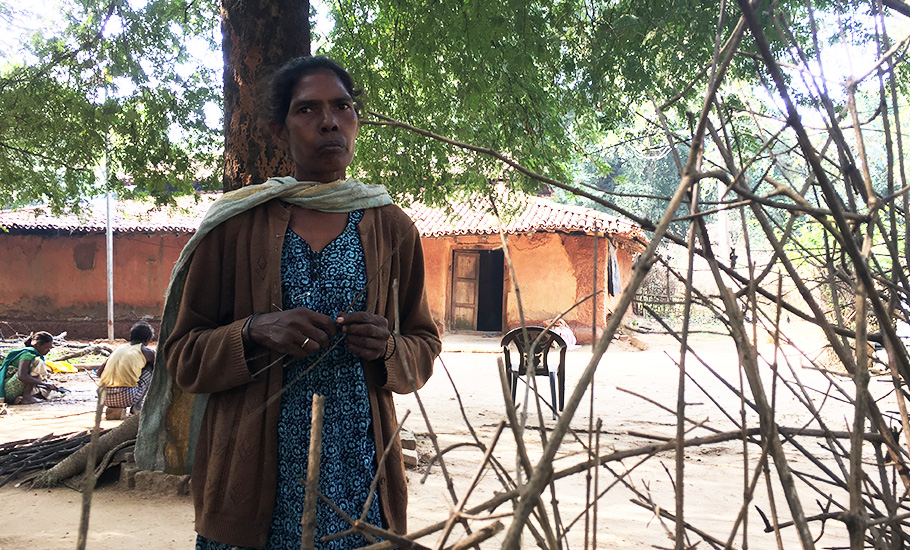
“It was rainy season and yet we managed to stay together and fight, but with the passage of time, as we disregarded their orders to come down, they showed no mercy on us. Men were arrested, women were beaten and kids were left homeless,” he says.
Angered by this, the villagers allegedly abducted three security personnel posted at the then-local BJP MP Karia Munda’s home in Khunti. This gave a fillip to the state to intensify the crackdown on them. Several villages were raided subsequently.
With increasing police brutality, there was a sense of gumption, fear and silence that prevailed in the villages. Many villagers who were on bail or released subsequently, went on the run. In many villages like Udburu, villagers feared to talk to outsiders and kept a close watch on anyone who entered the village.
Some of those who actively participated in the movement claim the state achieved two things in the process — it divided the people in the villages and created an atmosphere of fear among them.
For instance, in Udburu there were two groups — those who supported the movement and who those who did not. For those who supported the movement, it meant they would not take any support from the government — be it gas connection, electricity, ration or use the Aadhaar even if they had them.
But with the dying down of the movement, those who were poor and could no longer manage to survive on their own, and had to fall back on the system and depend on government services. Those who continued to resist are now treated as outcasts in the village.
In Udburu, the villagers have alienated Silmani and gave no support to her family as many moved away from the movement. Even Prabhu’s brother who worked as a school teacher and who did not participate in the movement, refuses to comment.
In some villages where the Pathalgadi proponents were arrested in large numbers, it meant non-supporters of the movement took control and those who supported became outcasts.
Similar scenes are playing out in villages like Bhandra, Ghaghara, Anidih, Sosodih among others.
Neither Deputy Superintendent of Police Ashish Kumar Mahli nor his office are willing to comment and show the FIR copies.
Political impact
While many of the villages boycotted Lok Sabha elections, they are yet to decide on whether to vote in the Assembly elections. In most villages, voters insist they would take a final call based on the gram panchayat meeting to be held two days before the second phase polls scheduled on December 7.
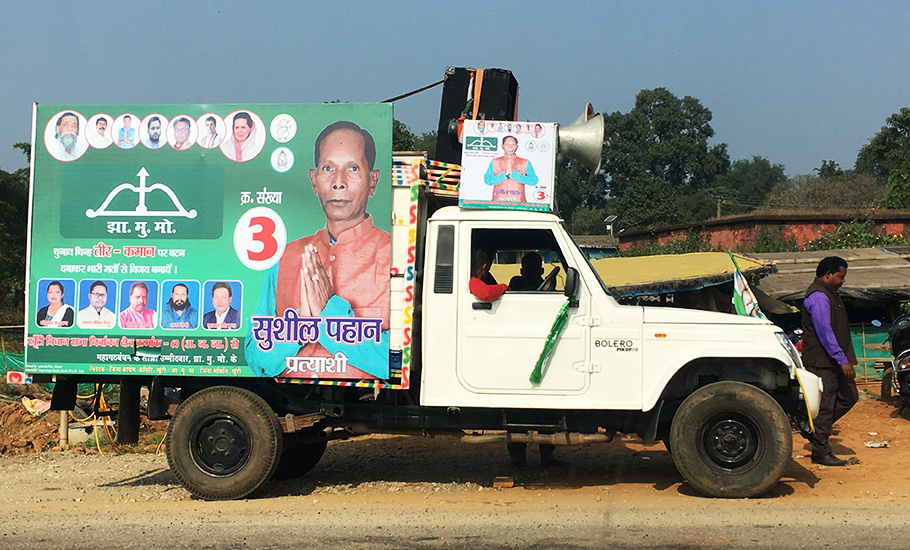
If they vote, it would go against the ruling BJP and if they do not, then it would help the saffron party as a low voter turnout will ensure only loyal party cadres vote.
The mood on the ground seems to be against the BJP in Pathalgadi villages. Except Jharkhand Vikas Morcha-Prajatantrik (JVM-P), which has fielded journalist and social activist Dayamani Barla as its candidate in Khunti, no other party can be seen campaigning in Pathalgadi villages.
While Barla disagrees with villagers on a poll boycott — not because she’s contesting elections but because unless there’s 100% boycott it won’t be a success — she expresses her support for the cause.
“Let the government explain why they failed over the years. What is their stand on protecting the forest, land and water of this region? What happened to the food supplies that the villagers declined to take? When will the police brutality end?” she asks.
If political parties take sides with the state, then they are sure to lose their votes. They know that if they side with the people, they would be closely watched and not be spared if they fail on their promises. Hence, they stay away from poll campaigns in these areas.
Jharkhand Janadhikar Mahasabha, a coalition of activists and people’s organisations, says none of the parties committed firmly to close the “false sedition cases” or said anything about the removal of police camps or taking irresponsible security personnel to task.
While the way the villagers interpret the Constitutional provisions, it says, may not always be right or be considered as far-fetched, the state should have taken this as an opportunity to engage, discuss and debate, instead of responding with severe repression and violence against the villagers.
“Apart from Pathalgadi ones, I have not seen other villages discuss constitutional provisions. So, those (Pathalgadi villages) should be developed as schools of democracy by the government where people can debate and discuss the interpretations of various clauses,” Siraj Dutta, a social activist in Jharkhand, says.
